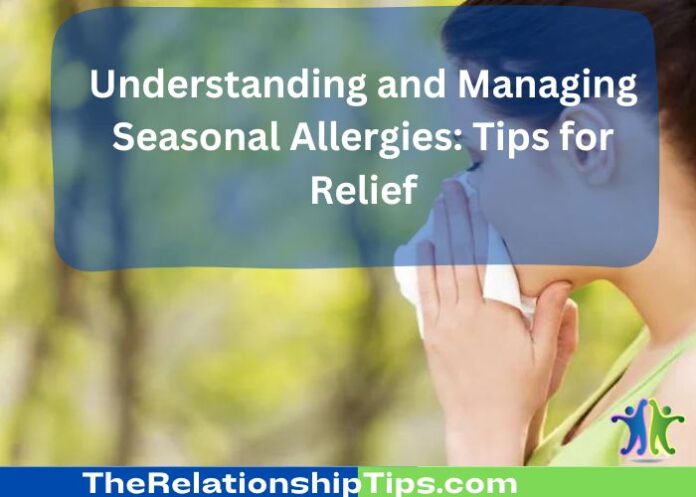Seasonal allergies, also known as hay fever or allergic rhinitis, affect millions of people worldwide. As the seasons change, the pollen count rises, triggering a variety of uncomfortable symptoms such as sneezing, itching, congestion, and watery eyes.
If you’re one of the many individuals who suffer from seasonal allergies, don’t worry! In this blog post, we will explore the causes of seasonal allergies, share tips for relief, and help you manage your symptoms effectively.
In This Article
Understanding Seasonal Allergies
Seasonal allergies occur when your immune system overreacts to harmless substances like pollen, mold spores, or grass. These allergens can be found in the air during certain times of the year, typically in spring, summer, or fall. When you inhale these allergens, your immune system releases histamines, which lead to the annoying symptoms associated with seasonal allergies.
Tips for Relief Seasonal Allergies
Monitor Pollen Levels
Stay informed about the local pollen count by checking weather reports or using dedicated pollen tracking apps. On high pollen days, try to stay indoors as much as possible, especially during peak pollen hours, typically early morning and late afternoon. [ READ: Say Goodbye to Brain Fog: Natural Remedies, Symptoms, Prevention, and Cure ]
Keep Windows Closed
To minimize the entry of pollen into your home, keep windows closed, especially on high pollen days. Consider using air purifiers with HEPA filters to further reduce indoor allergens.
Practice Good Hygiene
After spending time outdoors, take a shower and change your clothes to remove any pollen that might have accumulated on your body or clothes. This will prevent pollen from spreading throughout your home. [ READ: Erectile Dysfunction: Causes, Symptoms, Natural Remedies, Prevention, and Cure ]
Use Nasal Irrigation
Nasal irrigation with saline solution can help flush out allergens from your nasal passages and relieve congestion. Neti pots or saline nasal sprays are effective tools for this purpose. However, be sure to use distilled or sterilized water to avoid the risk of infection.
Take Over-the-Counter Medications
Over-the-counter antihistamines, decongestants, and nasal sprays can provide temporary relief from symptoms. Consult with your healthcare provider or pharmacist to find the right medication for your specific needs and any potential interactions with other medications you may be taking.
Wear Protective Gear
When working outdoors or participating in activities that may expose you to allergens, such as gardening, mowing the lawn, or hiking, wear a mask and sunglasses to prevent pollen from entering your airways and irritating your eyes. [ READ: Urinary Tract Infections (UTIs): Natural Remedies, Symptoms, Causes, Prevention and Cure ]
Maintain a Clean Living Environment
Regularly vacuum your home using a vacuum cleaner equipped with a HEPA filter to trap allergens. Dust surfaces with a damp cloth to prevent the spread of dust and pollen. Wash bedding frequently in hot water to eliminate allergens.
Consider Allergen Immunotherapy
If your seasonal allergies are severe and significantly impact your quality of life, you may want to explore allergen immunotherapy, commonly known as allergy shots. This treatment involves receiving injections of small amounts of allergens over time, gradually desensitizing your immune system and reducing your allergic reactions.
Conclusion
While seasonal allergies can be frustrating, following these tips can help alleviate your symptoms and improve your overall well-being during allergy seasons. Remember to monitor pollen levels, practice good hygiene, use nasal irrigation, consider over-the-counter medications, wear protective gear, maintain a clean living environment, and consult with your healthcare provider about potential treatment options. By taking proactive steps, you can effectively manage your seasonal allergies and enjoy the changing seasons with fewer discomforts.





